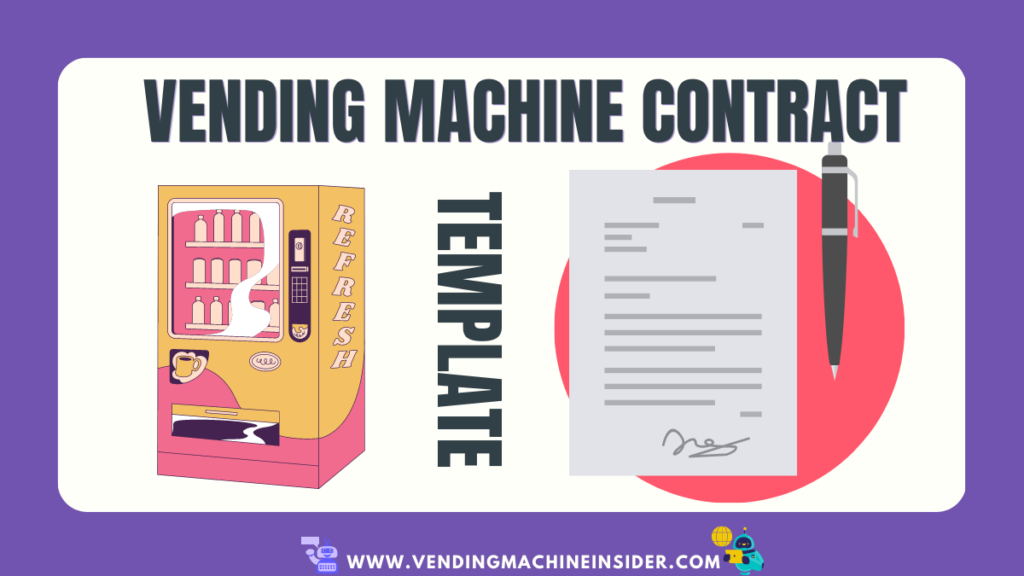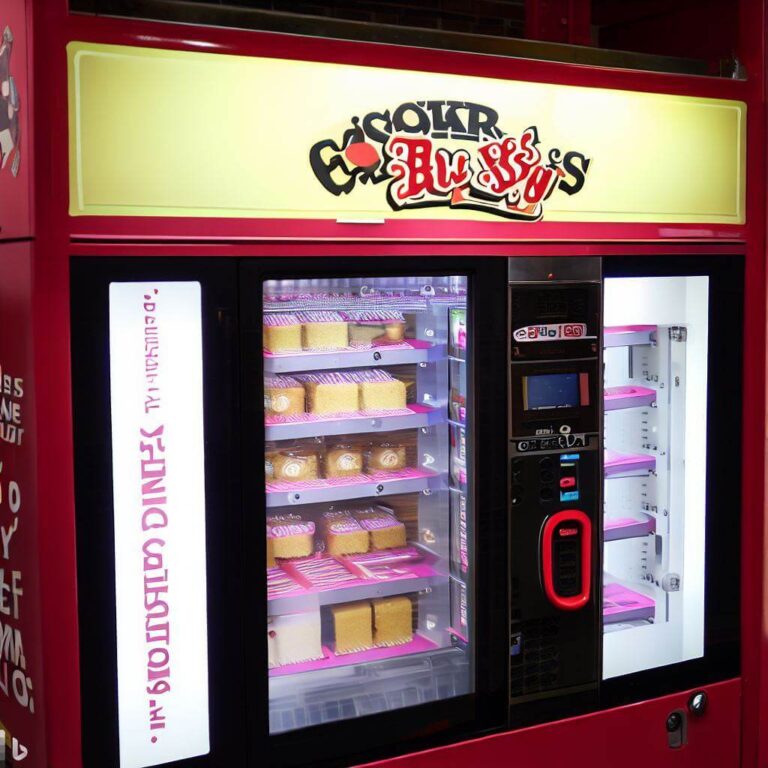html Vending Machine Contract Template: Avoid THIS HUGE Mistake! Vending Machine Contract Template: Avoid THIS HUGE Mistake Before Signing! Setting up a vending machine at your business seems like a simple, passive income opportunity. You provide the space, and a vendor handles everything else, right? Not always. The details of your vending machine contract are critical, and overlooking key clauses can lead to significant financial losses and headaches. This article will guide you through the essentials, helping you avoid a common and costly mistake. The Biggest Mistake: Not Understanding the Contract's Fine Print The biggest mistake businesses make when signing a vending machine contract is failing to thoroughly review and understand every detail. This isn't just about skimming the document; it’s about a detailed analysis. Many contracts are heavily weighted in favor of the vendor, and without careful scrutiny, you could be locked into unfavorable terms for years. Why This Matters: Common Contract Traps Here's why a thorough review is vital: Exclusivity Clauses: These can prevent you from having other vending machines (e.g., a coffee machine) or even selling competing products (e.g., your own snacks) in the vicinity. Profit Sharing: Ensure the profit split is fair and clearly defined. Some contracts have hidden fees that reduce your actual earnings. Maintenance Responsibilities: Clarify who is responsible for repairs, restocking, and cleaning. Unclear language can lead to disputes. Contract Duration and Termination: Understand how long the contract lasts and the conditions for early termination. Some contracts have very long terms with harsh penalties for ending them. Product Selection: The contract should specify who chooses the products and if you have any input. You want products that appeal to your customers or employees. Key Contract Clauses You MUST Scrutinize Let's delve into the specific clauses that require your utmost attention. These are the areas where vendors often bury unfavorable terms. 1. Exclusivity Clause: The "All or Nothing" Deal The exclusivity clause is often the most restrictive. It dictates whether the vendor has exclusive rights to vending services on your property. Before signing, consider these questions: What does "exclusive" mean? Does it cover all vending services, or just certain types (e.g., snacks but not beverages)? Are there exceptions? Can you still provide free refreshments to employees or customers? What are the consequences of violating the clause? Penalties can range from financial fines to contract termination. Negotiate to limit the scope of the exclusivity if possible. Consider allowing other vending options if the original vendor doesn't offer the products you want. [Link to article on negotiating contracts - e.g., "Negotiating Vending Machine Contracts: A Step-by-Step Guide"] 2. Profit Sharing: Demystifying the Numbers Profit sharing seems straightforward, but it often hides complexities. Look for the following: Gross vs. Net Revenue: Define the revenue basis. Does the split apply to gross sales or net profit (after deducting expenses)? Expense Deductions: What expenses are deducted before profit is calculated? Are there restocking fees, service charges, or other hidden costs? Payment Schedule: How often will you receive payments, and what method will be used? (e.g., monthly checks, direct deposit). Reporting Requirements: How will you be provided with sales data? Do you have the right to audit the vendor's records? Request a clear breakdown of all costs and expenses. Negotiate a profit-sharing arrangement that is fair and transparent. [Link to example profit-sharing calculation template - e.g., "Download a Free Vending Machine Profit Sharing Calculator"] 3. Maintenance, Repair, and Restocking: Who Does What? The contract must clearly outline responsibilities for: Machine Maintenance and Repairs: Who pays for repairs, and how quickly will they be addressed? Restocking: Who is responsible for keeping the machine stocked? How often will it be restocked? Cleaning: Who cleans the machine, both inside and out? Emergency Situations: What happens if the machine malfunctions, and how quickly will it be addressed? Ensure the contract specifies service level agreements (SLAs) for response times to repair requests. Consider including a clause that allows you to terminate the contract if the vendor consistently fails to meet these obligations. 4. Contract Term and Termination: The Exit Strategy This is a crucial section. A poorly worded contract can lock you in for years with no recourse. Review these aspects carefully: Contract Duration: How long is the contract for? Is it automatically renewable? Termination Clause: What are the conditions for ending the contract? Are there penalties for early termination? "For Cause" Termination: Can you terminate the contract if the vendor fails to meet their obligations (e.g., poor service, low sales)? Notice Periods: How much notice is required to terminate the contract? Try to negotiate a shorter contract term with a clear termination clause, allowing you to end the agreement if the vendor doesn't perform. Protecting Yourself: Steps to Take Before Signing Follow these steps to protect yourself and avoid the biggest mistake: Read the Entire Contract: Don't just skim it. Read every word, and understand its implications. Seek Legal Advice: Consider having a lawyer review the contract, especially if it's complex or involves significant revenue. Negotiate: Don't be afraid to negotiate. Vendors often expect some back-and-forth. Get Everything in Writing: Any agreements or changes to the contract should be documented in writing. Check References: Ask for references from other businesses that use the vendor's services. Conclusion: Make Informed Decisions Entering into a vending machine contract can be a profitable venture, but it requires careful planning and due diligence. By understanding the key clauses, avoiding the biggest mistake of neglecting the fine print, and taking the necessary precautions, you can protect your interests and ensure a successful partnership. Remember, a well-negotiated contract is the foundation of a profitable and trouble-free vending machine arrangement. Don't rush into signing; take your time, ask questions, and make informed decisions. This proactive approach will save you headaches (and money!) down the road. [Link to resources on business law - e.g., "Small Business Legal Resources - SCORE"]
Vending Machine Contract Template: Avoid This Huge Mistake Before Signing!
```html Vending Machine Contract Template: Avoid THIS HUGE Mistake! Vending Machine Contract Template: Avoid THIS HUGE Mistake Before Signing! Setting up a vending machine at...




